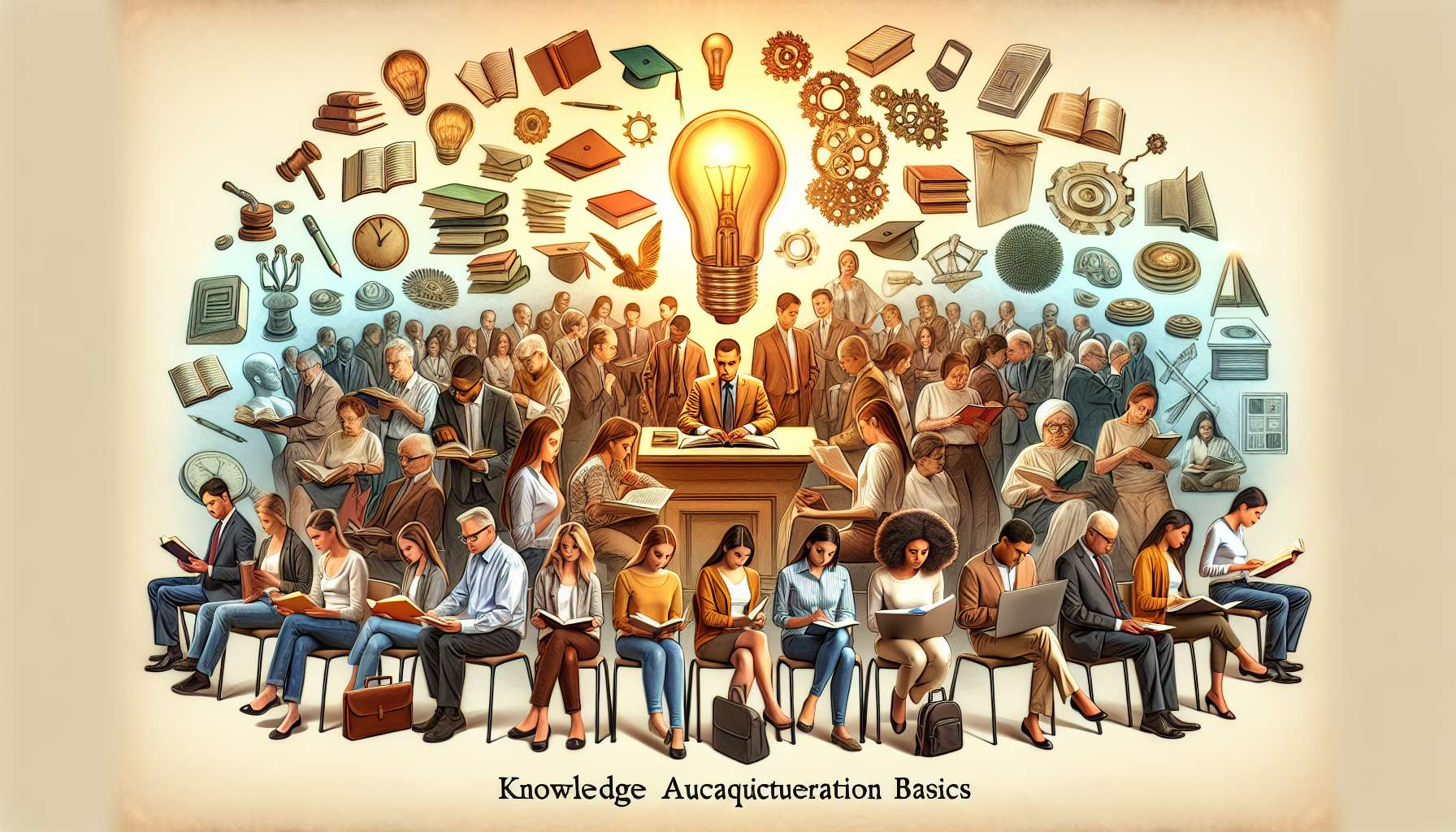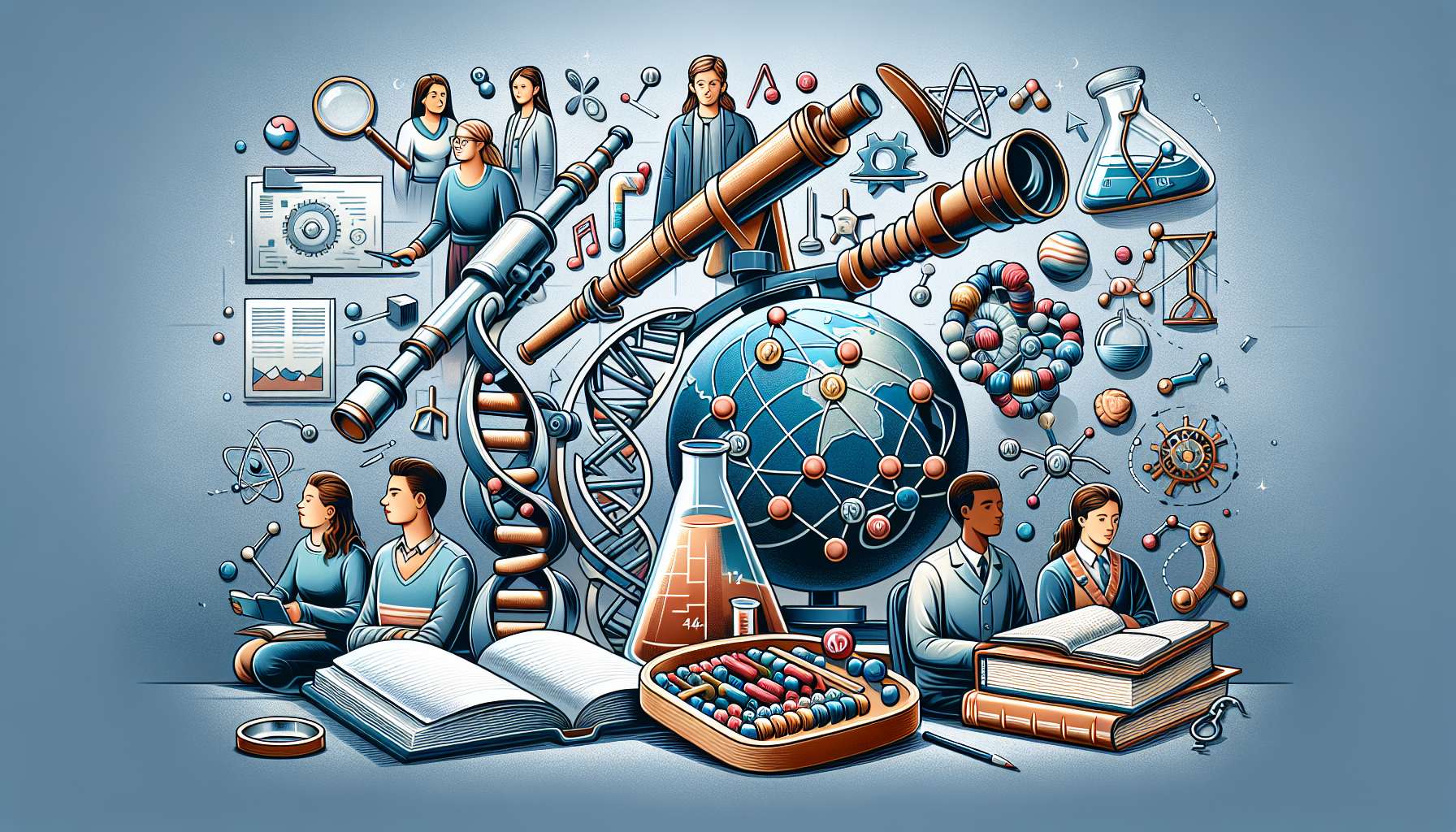Unraveling the Intricacies of Knowledge Acquisition Basics
Knowledge is often regarded as the cornerstone of human progress, enabling individuals to learn, grow, and innovate. In today’s fast-paced world, the ability to acquire knowledge efficiently and effectively is paramount. But what exactly does knowledge acquisition entail? How do we absorb, process, and integrate new information into our existing understanding of the world? In this comprehensive guide, we delve into the fundamentals of knowledge acquisition, exploring its various facets, applications, and implications.
The Psychology of Learning
At the heart of knowledge acquisition lies the intricate workings of the human mind. Cognitive psychology plays a crucial role in understanding how individuals perceive, learn, and retain information. One of the key theories in this field is the information processing model, which posits that humans engage in a series of mental processes to encode, store, and retrieve knowledge. From sensory memory to working memory and long-term memory, each stage of this process influences our ability to acquire and retain new information.
Moreover, factors such as attention, motivation, and prior knowledge significantly impact how we learn. For instance, individuals are more likely to remember information that is personally relevant or aligns with their existing beliefs and experiences. By leveraging these cognitive principles, educators, trainers, and instructional designers can optimize learning environments to enhance knowledge acquisition.
Learning Styles and Strategies
While the process of knowledge acquisition is universal, the ways in which individuals learn best can vary widely. According to educational theorists like David Kolb and Howard Gardner, people exhibit diverse learning styles, such as visual, auditory, kinesthetic, and reading/writing preferences. Understanding these preferences can help tailor instructional methods to suit the needs of different learners.
Additionally, adopting effective learning strategies can bolster knowledge acquisition. Techniques like spaced repetition, elaborative interrogation, and concept mapping have been shown to enhance memory retention and comprehension. By incorporating these evidence-based strategies into their study routines, students can optimize their learning outcomes and mastery of new subjects.
Technology and Knowledge Acquisition
In the digital age, technology has revolutionized the landscape of knowledge acquisition. Online platforms, educational apps, and virtual reality tools offer interactive and immersive learning experiences that cater to diverse learning styles and preferences. E-learning, MOOCs (Massive Open Online Courses), and AI-driven tutoring systems have democratized access to education, empowering learners worldwide to acquire knowledge anytime, anywhere.
Furthermore, artificial intelligence and machine learning algorithms are being leveraged to personalize learning pathways, provide real-time feedback, and adapt educational content to individual learner needs. By harnessing the power of technology, educators can create dynamic and engaging learning environments that foster deep understanding and critical thinking skills.
Knowledge Acquisition in the Workplace
Knowledge acquisition is not limited to academic settings; it is also integral to professional development and organizational success. In the corporate world, continuous learning and upskilling are essential for employees to stay competitive and adapt to rapidly changing market trends. Workplace training programs, mentorship initiatives, and knowledge-sharing platforms facilitate knowledge acquisition within organizations.
Moreover, knowledge management strategies, such as communities of practice, knowledge repositories, and expert networks, enable companies to capture, store, and disseminate valuable insights and expertise. By fostering a culture of knowledge sharing and collaboration, businesses can leverage their collective intelligence to drive innovation and achieve strategic objectives.
Evaluating Knowledge Acquisition
Assessing the effectiveness of knowledge acquisition efforts is crucial to ensuring meaningful learning outcomes. Evaluation methods such as formative assessment, summative assessment, and performance-based assessments provide valuable insights into learner progress and comprehension. By collecting and analyzing data on learning outcomes, educators can identify areas for improvement and tailor instructional strategies to meet learner needs.
Furthermore, feedback mechanisms, self-assessment tools, and peer reviews can enhance the learning experience by promoting reflection, self-regulation, and metacognitive skills. Encouraging learners to monitor their own learning processes and set goals for improvement fosters a sense of ownership and autonomy in knowledge acquisition.
Challenges and Opportunities
Despite the numerous benefits of knowledge acquisition, several challenges persist in the realm of education and training. Issues such as information overload, cognitive biases, and limited attention spans can hinder the acquisition and retention of knowledge. Moreover, disparities in access to quality education and resources create barriers to learning for marginalized populations.
However, with these challenges come opportunities for innovation and growth. By embracing emerging technologies, adopting learner-centered approaches, and promoting lifelong learning, we can overcome obstacles to knowledge acquisition and empower individuals to reach their full potential. By fostering a culture of curiosity, critical thinking, and continuous improvement, we can create a more informed and enlightened society.
Expert Opinions
Renowned psychologist Dr. Carol Dweck emphasizes the importance of a growth mindset in knowledge acquisition, stating, “Individuals who believe their abilities can be developed through dedication and hard work are more likely to achieve their goals and excel in their pursuits.” This mindset shift from a fixed to a growth mindset can significantly impact how we approach learning and overcome challenges.
Similarly, education futurist Sir Ken Robinson advocates for a holistic approach to knowledge acquisition, asserting, “Creativity, critical thinking, and collaboration are essential skills for success in the 21st century. Educators must prioritize the development of these skills to prepare students for the challenges and opportunities of the future.” By fostering a well-rounded education that nurtures diverse talents and abilities, we can cultivate a generation of lifelong learners and innovators.
Conclusion
To wrap things up, knowledge acquisition is a multifaceted process that underpins human learning and development. By understanding the psychology of learning, adopting effective strategies, leveraging technology, and fostering a culture of continuous improvement, we can enhance our capacity to acquire and apply knowledge in various contexts. As we navigate the complexities of an ever-evolving world, cultivating a thirst for knowledge, embracing new challenges, and seeking growth opportunities are essential for personal and professional success. Let us embark on this journey of discovery with curiosity, resilience, and a commitment to lifelong learning.




